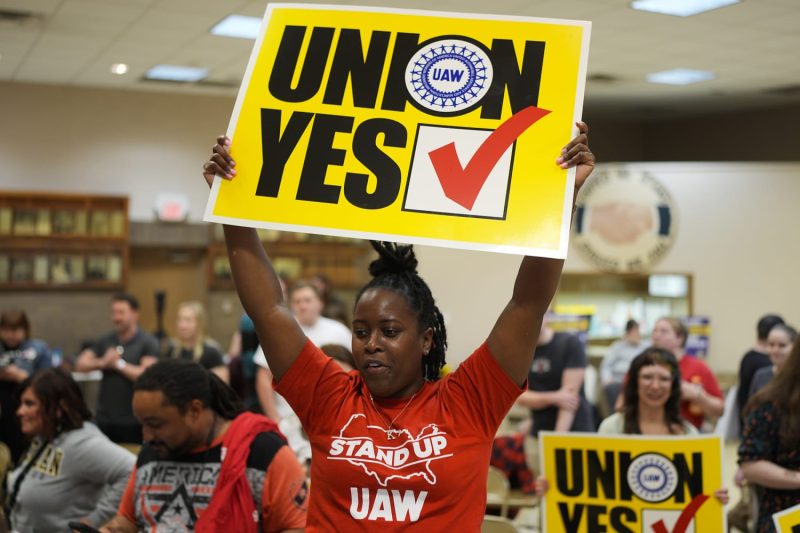The United Auto Workers (UAW) Union has recently set its sights on achieving a significant victory at the Mercedes-Benz assembly plant in Alabama. This move by the UAW signifies a renewed effort to unionize workers in the auto industry amid ongoing challenges and shifts in the labor landscape.
The potential unionization of the Mercedes plant in Alabama has far-reaching implications, not only for the workers directly involved but also for the broader context of labor relations in the United States. The UAW’s push for unionization at a high-profile facility like Mercedes signals a strategic decision to target key players in the auto industry, showcasing the union’s determination to secure better wages, benefits, and working conditions for its members.
The UAW’s campaign at the Mercedes plant is not without its obstacles. The traditional anti-union sentiment in the South, where the plant is located, presents a significant challenge to organizing efforts. Furthermore, the unique dynamics of the auto industry, characterized by global competition and evolving technologies, add complexity to the unionization process.
Despite these challenges, the UAW is employing a multi-faceted approach to win over workers and secure their support for union representation. This strategy includes engaging with employees through grassroots organizing efforts, highlighting the benefits of union membership, and addressing concerns and misconceptions about unions.
Additionally, the UAW is leveraging its experience and resources to navigate the intricacies of labor law and collective bargaining, ensuring that the rights and interests of workers are safeguarded throughout the unionization process. By emphasizing the power of collective bargaining and solidarity, the union aims to empower workers to advocate for fair treatment and representation in the workplace.
The outcome of the UAW’s efforts at the Mercedes plant in Alabama will not only impact the workers directly involved but may also set a precedent for future unionization campaigns in the auto industry and beyond. As labor organizations navigate a changing economic landscape and evolving work environments, the success of the UAW’s campaign at Mercedes could shape the future of labor relations in the United States.
In conclusion, the UAW’s pursuit of unionization at the Mercedes plant in Alabama represents a critical juncture in the ongoing struggle for workers’ rights and representation in the auto industry. By mobilizing workers, engaging in strategic organizing, and advocating for better working conditions, the UAW is striving to achieve a significant victory that could reverberate throughout the labor movement. This development underscores the enduring importance of unions in safeguarding the interests of workers and promoting a more equitable and just workplace environment.

